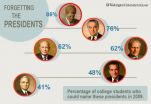(Press-News.org) Behavioural and drug interventions aiming to prevent people with prediabetes progressing to full blown type 2 diabetes are equally effective for both sexes at preventing progression and reducing weight, according to a new systematic review and meta-analysis. The research is by Dr Anna Glechner, Danube University Krems, Austria, and Dr Jürgen Harreiter, Medical University of Vienna, Austria, and colleagues.
Prediabetes is a general term that refers to an intermediate stage between normal blood glucose control (normoglycaemia) and type 2 diabetes (high blood glucose levels/poor control). It includes individuals with impaired glucose tolerance (IGT), impaired fasting glucose (IFG) and a combination of the two.
Early detection of prediabetes offers the possibility of using lifestyle or pharmacological interventions to prevent or slow the progression to type 2 diabetes. Numerous studies provide evidence that lifestyle interventions such as changes in diet and regular physical activity, or oral glucose-lowering drugs, can delay or prevent the onset of type 2 diabetes in people with prediabetes.
In this new analysis, the authors searched for studies between 1980 and 2013 that explored sex-specific differences in treatment effects, and found 12 studies that matched their criteria. If published studies did not provide enough detail, they contacted authors to release unpublished data on sex-specific differences. Compared with usual care, men and women who received lifestyle interventions (including diet and exercise) were 40% less likely to progress to type 2 diabetes after 1 year; and 37% less likely to progress after 3 years.
People involved in lifestyle interventions also experienced greater weight reductions (mean increased weight loss 2.45 kg after 3 years versus usual care), and greater reductions of fasting plasma glucose (−0.31 mmol/l greater after 3 years versus usual care). No statistically significant differences in treatment effects between men and women were apparent for any outcomes.
Overall, no differences in the preventive effect of therapies with oral glucose-lowering agents between men and women could be detected. However, the intake of oral glucose-lowering drugs was associated with a reduction of type 2 diabetes.
The authors say: "To the best of our knowledge, this is the first systematic review that assessed potential sex-specific differences in effects of preventive interventions in prediabetic people. Overall, based on data from more than 5,500 men and 7,400 women, our review did not find any relevant sex-specific differences in treatment effects during 1 to 6 years of active interventions. In both sexes, lifestyle and pharmacological interventions had a beneficial preventive effect on the incidence of type 2 diabetes and weight gain."
They add: "Clinically, these findings highlight an important issue. Despite differences in age of onset, detection and burden of type 2 diabetes between men and women, the effectiveness of preventive interventions in people with prediabetes is not influenced by gender. Consequently, clinicians and prevention managers can focus on factors that are known to determine the magnitude of beneficial effects, such as adherence. Clinicians also need to focus on other aspects of sex-disparities such as the higher incidence of type 2 diabetes in middle-aged men and gaps in the quality of care between diabetic men and women."
Successful prevention of diabetes also, say the authors, has an economic impact. They say: "Recent cost-effectiveness analyses indicate that lifestyle interventions are the most cost-effective approach. In people with prediabetes who are not able to adhere to lifestyle changes, initiation of metformin is probably the next best option, but thus far, no trial evidence confirms this for non-responders to lifestyle interventions."
INFORMATION:
Using a patient's own rib cartilage (autologous) for rhinoplasty appears to be associated with low rates of overall long-term complications and problems at the rib site where the cartilage is removed, according to a report published online by JAMA Facial Plastic Surgery.
Autologous rib cartilage is the preferred source of graft material for rhinoplasty because of its strength and ample volume. However, using rib cartilage for dorsal augmentation to build up the bridge of the nose has been criticized for its tendency to warp and issues at the cartilage donor site, such ...
The five-year survival rate for advanced-stage laryngeal cancer was higher than national levels in a small study at a single academic center performing a high rate of surgical therapy, including a total laryngectomy (removal of the voice box), to treat the disease, despite a national trend toward organ preservation, according to a report published online by JAMA Otolaryngology-Head & Neck Surgery.
The larynx is a common site of head and neck cancer with more than 10,000 cases annually. Over the past two decades, treatment for advanced-stage laryngeal cancer has shifted ...
The way that tetanus neurotoxin enters nerve cells has been discovered by UCL scientists, who showed that this process can be blocked, offering a potential therapeutic intervention for tetanus. This newly-discovered pathway could be exploited to deliver therapies to the nervous system, opening up a whole new way to treat neurological disorders such as motor neuron disease and peripheral neuropathies.
The research in mice, published in Science and funded by the Medical Research Council, shows that proteins called nidogens that coat cell surfaces are key to tetanus neurotoxin ...
PITTSBURGH--The rise of social media has seemed like a bonanza for behavioral scientists, who have eagerly tapped the social nets to quickly and cheaply gather huge amounts of data about what people are thinking and doing. But computer scientists at Carnegie Mellon University and McGill University warn that those massive datasets may be misleading.
In a perspective article published in the Nov. 28 issue of the journal Science, Carnegie Mellon's Juergen Pfeffer and McGill's Derek Ruths contend that scientists need to find ways of correcting for the biases inherent in the ...
Walter and Eliza Hall Institute researchers have defined for the first time how the size of the immune response is controlled, using mathematical models to predict how powerfully immune cells respond to infection and disease.
The finding, published today in the journal Science, has implications for our understanding of how harmful or beneficial immune responses can be manipulated for better health.
The research team used mathematics and computer modeling to understand how complex signaling impacts the size of the response by key infection-fighting immune cells called ...
Given that some climate change is already unavoidable--as just confirmed by the new IPCC report--investing in empowerment through universal education should be an essential element in climate change adaptation efforts, which so far focus mostly in engineering projects, according to a new study from the International Institute for Applied Systems Analysis (IIASA) published in the journal Science.
The article draws upon extensive analysis of natural disaster data for 167 countries over the past four decades as well as a number of studies carried out in individual countries ...
Nora Besansky, O'Hara Professor of Biological Sciences at the University of Notre Dame and a member of the University's Eck Institute for Global Health, has led an international team of scientists in sequencing the genomes of 16 Anopheles mosquito species from around the world.
Anopheles mosquitoes are responsible for transmitting human malaria parasites that cause an estimated 200 million cases and more than 600 thousand deaths each year. However, of the almost 500 different Anopheles species, only a few dozen can carry the parasite and only a handful of species are responsible ...
Certain species of mosquitoes are genetically better at transmitting malaria than even some of their close cousins, according to a multi-institutional team of researchers including Virginia Tech scientists.
Of about 450 different species of mosquitoes in the Anopheles genus, only about 60 can transmit the Plasmodium malaria parasite that is harmful to people. The team chose 16 mosquito species that are currently found in Africa, Asia, Europe, and Latin America, but evolved from the same ancestor approximately 100 million years ago.
Today, the 16 species have varying ...
A growing number of academic researchers are mining social media data to learn about both online and offline human behavior. In recent years, studies have claimed the ability to predict everything from summer blockbusters to fluctuations in the stock market.
But mounting evidence of flaws in many of these studies points to a need for researchers to be wary of serious pitfalls that arise when working with huge social media data sets, according to computer scientists at McGill University in Montreal and Carnegie Mellon University in Pittsburgh.
Such erroneous results ...
American presidents spend their time in office trying to carve out a prominent place in the nation's collective memory, but most are destined to be forgotten within 50-to-100 years of their serving as president, suggests a study on presidential name recall released today by the journal Science.
"By the year 2060, Americans will probably remember as much about the 39th and 40th presidents, Jimmy Carter and Ronald Reagan, as they now remember about our 13th president, Millard Fillmore," predicts study co-author Henry L. Roediger III, PhD, a human memory expert at Washington ...

